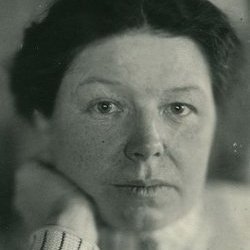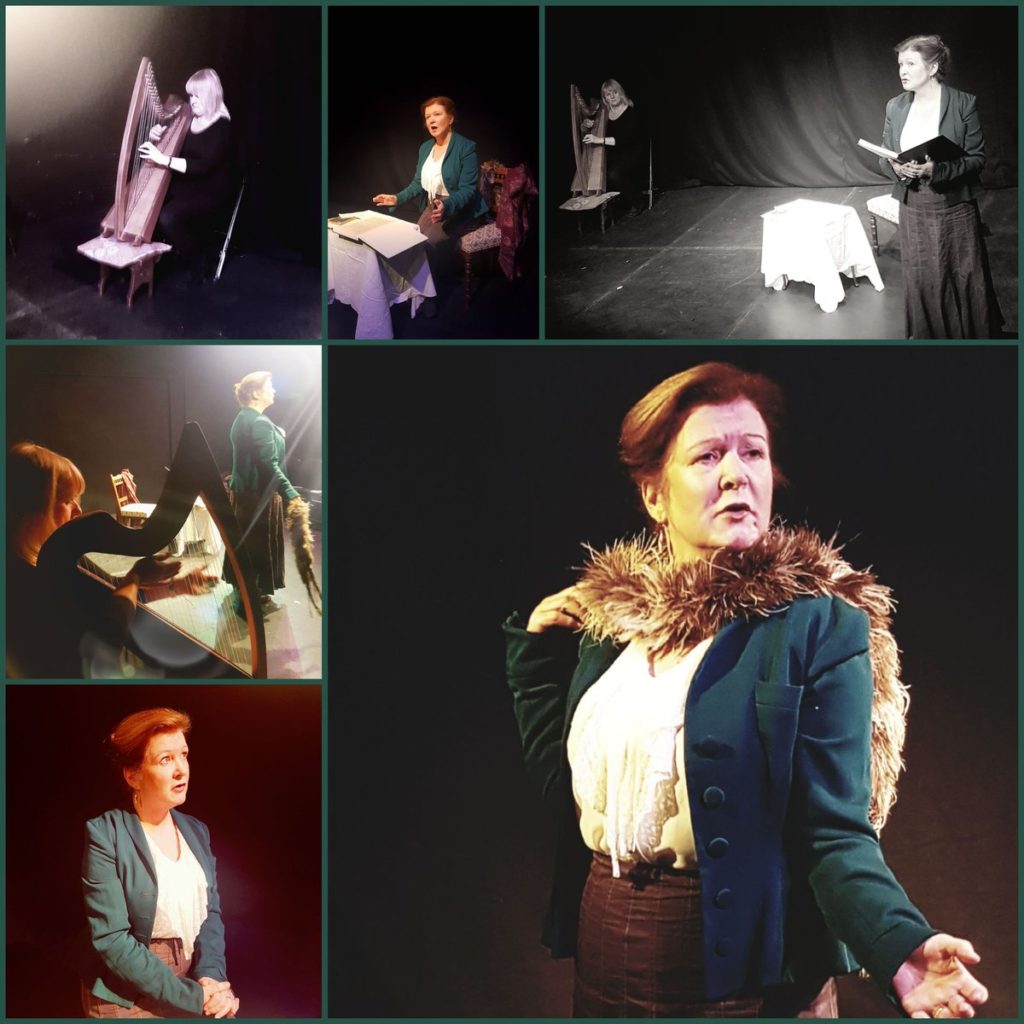Charlotte Payne-Townshend is not exactly a household name.
In fact, in today’s celebrity-obsessed culture, it’s very possible one might hear it and think Will and Kate’s four-year-old daughter has only gone off and adopted a bizarre double-barrelled street name to shake off her royal duties.
But for most normal folk, it’s met with an empty stare, a dismissive shrug and a puzzled, ‘Who the heck is that?’
Don’t fear - Mrs Shaw Herself is here to answer that question.
Created by musician Helen Tierney and actress Alexis Leighton, this one-woman play is an intimate glimpse into the life of Charlotte Payne Townshend, Irish heiress and activist - who also happened to be the wife of the legendary George Bernard Shaw.
Tierney seeks to restore the spirit of this unsung hero, whose achievements have historically been outshone by the glare of her husband’s.
An affluent political campaigner who championed the education of women, Charlotte was one of the key Irish players in the feminist movement of the early twentieth century.
Rather than hoard or squander her riches, she exploited her privilege to benefit others.
She single-handedly funded a scholarship for women at the London School of Economics and even donated a hefty £1000 to the establishment of its Shaw Library in 1939.
She was also a driving force in the Fabian Women’s Group, which promoted suffrage equality for women through debates and publications.
And yet, despite her major contributions to society, she has yet to receive the acclaim she so evidently deserves.
 Charlotte Payne Townshend was the little-known wife of George Bernard Shaw
Charlotte Payne Townshend was the little-known wife of George Bernard ShawThis hour-long production lifts Charlotte from the pages of her husband’s writings, granting her a platform to speak freely and express her individuality to her audience.
By weaving the script exclusively out of genuine diaries and letters, every line drips with authenticity and passion.
Tierney explains this decision to rely on primary sources.
“It’s an hour where they can get to know her in her own words. We want people to have a real sense of her when they leave the play.”
To truly nurture this sense, Tierney splashes the play with the voices of Charlotte’s friends and acquaintances.
Chameleon actress Leighton embodies an array of different characters, playing Charlotte, George Bernard Shaw, Beatrice Webb and more.
This metamorphosis not only softens the potential stagnation of a one-person play, it enhances the audience’s understanding of Charlotte.
As Tierney explains: “We learn about her from other people’s words.”
It’s a panoramic view of Charlotte Payne Townshend - a 360 degrees rotation of a woman who has hovered as a 2D background character for too long.
The message is simple - the most important part of Mrs Shaw, is in fact, herself.
Tierney hopes that that this portrayal will exemplify Charlotte’s multi-faceted personality. Her marriage to a notorious playboy may have drew some concerns, but it never inhibited her pursuit of success and happiness.
Tierney explains that the play emphasises this independence, explaining: “She’s not a victim. She’s feisty, she has ideas of her own.”
In many ways, it was this unyielding gumption that fuelled her unconventional relationship with one of Ireland’s most beloved writers.
Despite their practice of celibacy, Charlotte and George remained together for over 40 years.
It is said that their bond was cemented by their mutual respect for each other’s endeavours - she helped him craft fiction, he helped her actualise realities.
Their marriage may have been sexless, but it certainly wasn’t loveless.
Tierney argues that their story lends a glimmer of hope to a society blotted by billowing divorce rates.
“It’s a tale of a marriage that survives. He could be infuriating to live with and maybe she wasn’t easy either, but they both gave things to each other that are really positive. Often you don’t see that side of a marriage.”
By recognising her as both an individual and a partner, the play tackles the widespread misconception that the combination of feminism and marriage is incongruent.
Charlotte’s role as a wife was a part of her, but it was by no means, all of her.
 Helen Tierney's play hopes to bring the legacy of Charlotte Payne Townshend to the forefront
Helen Tierney's play hopes to bring the legacy of Charlotte Payne Townshend to the forefrontMrs Shaw Herself will be performed in London on February 1 as part of the Herstory Light Festival.
Inspired by one of Ireland’s patron saints, St. Brigid, this three-day long event celebrates the Irish women of our present and our past.
Tierney believes this is an ideal environment to stage the play, comparing the silencing of Charlotte’s achievements under the volume of her husband’s legacy to “how St. Brigid has always been in the shadow of St. Patrick”.
This homage to Ireland is reflected in Tierney’s Celtic harp playing, which gently punctuates each scene and embellishes the effect of Charlotte’s words.
Charlotte has been introduced to over 30 audiences in the United Kingdom, and Tierney is now planning to bring her home to Ireland. She reveals her hopes to perform it in Cork, where Charlotte was born and raised.
With just one actor, minimal props and modest staging, Mrs Shaw Herself is the farthest thing from a glitzy pantomime.
Viewers won’t come away with ringing ears and dizzy eyeballs, high on the rush of high-budget spectacles.
This play doesn’t seek to overdose your senses, and, led by such a powerful character, it doesn’t need to.
What it does do is introduce you to one of Ireland’s most underrated heroes, luring you into the depths of her psyche and colouring in the blank her name once drew.
Having sat down with little to no knowledge of Charlotte Payne Townshend, you’ll stand up with that profound feeling of having met someone you feel like you’ve known for years.
Rather than cheering ‘bravo’ after the final scene, you might just find yourself waving ‘goodbye’.
Mrs Shaw Herself is at The Intimate Space at Hornsey Church Tower at 2.30pm on February 1. Tickets £10 and £8 on Eventbrite.com.

